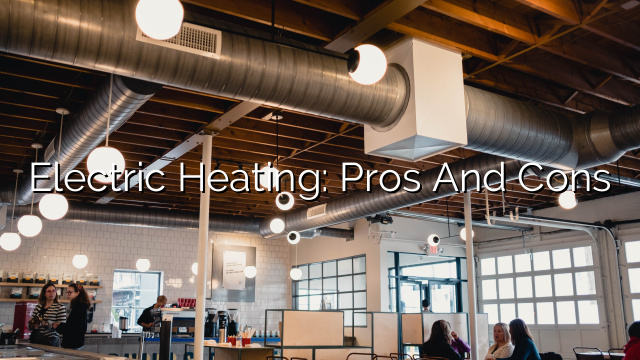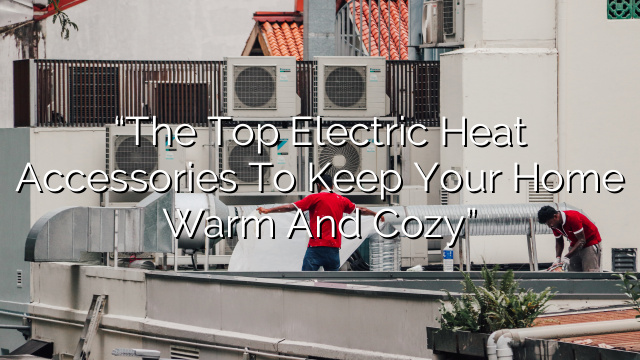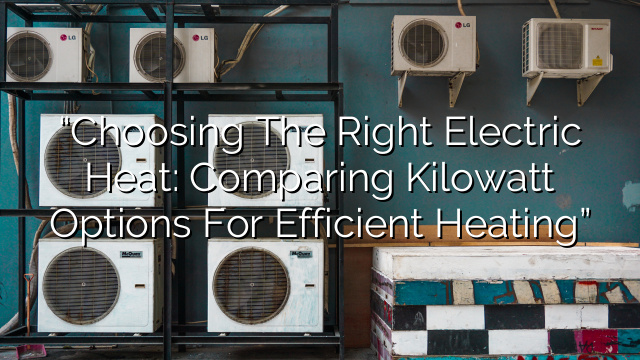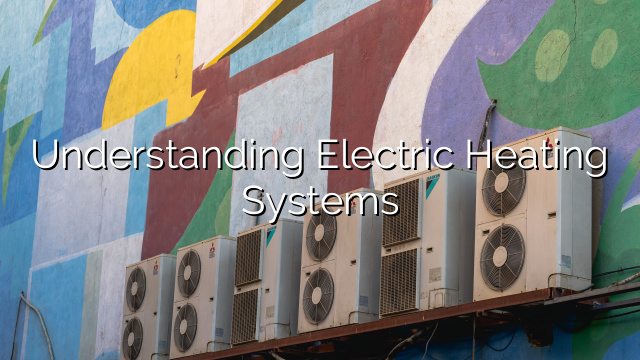Introduction
As the winter season approaches, many households are relying on electric heating to keep their homes warm and comfortable. However, using electric heaters efficiently and safely is crucial to avoid any issues. In this blog post, we will discuss the best practices for electric heating in winter to help you make the most of your electric heaters while keeping your energy bills in check.
1. Insulate your home
Before you turn on your electric heaters, it is important to ensure that your home is properly insulated. Poor insulation can result in heat loss, making it harder for your heaters to maintain a comfortable temperature. Consider adding insulation to your attic, walls, and windows to prevent any drafts and retain heat.
2. Use a programmable thermostat
A programmable thermostat allows you to set specific temperature schedules for different times of the day. Instead of keeping your heater running constantly at a high temperature, you can set it to automatically adjust the temperature based on when you are typically at home or asleep. This not only saves energy but also ensures that you have a comfortable environment whenever you need it.
3. Close off unused rooms
If there are any rooms in your home that you rarely use, consider closing them off to prevent wasting energy on heating them. Close the doors and seal any gaps under them to keep the warm air in the main areas of your home where it is needed the most.
4. Use space heaters strategically
If you have specific areas in your home that require extra heating, consider using space heaters instead of turning up the temperature on your central heating system. Space heaters can be more efficient and cost-effective for heating small and targeted spaces. However, it is important to use them safely and never leave them unattended.
5. Avoid blocking heat sources
Make sure that your electric heaters are not obstructed by furniture, drapes, or any other objects that may block the heat flow. Blocked heaters not only affect the efficiency of the heating system but also pose a fire hazard. Keep all flammable materials at a safe distance from the heaters to avoid any accidents.
6. Consider using electric heating pads or blankets
If you find yourself feeling cold while sleeping or sitting on the couch, using electric heating pads or blankets can be a great option. These devices provide localized heat and are more energy-efficient than cranking up the thermostat for the entire house. Just remember to follow the manufacturer’s instructions and never leave them unattended when in use.
7. Service your heaters regularly
Regular maintenance of your electric heaters is essential for their efficient and safe operation. Clean or replace air filters to ensure proper airflow and eliminate any dust buildup. Additionally, have a professional inspect your heating system to identify any issues or potential problems before the peak winter season.
8. Use curtains or blinds strategically
Curtains or blinds can play a significant role in efficiently using electric heating. During the day, open them to allow sunlight to naturally warm your home. Once the sun sets, close them to trap the heat inside and prevent any cold drafts from entering.
9. Dress warmly
One of the simplest and most cost-effective ways to reduce your reliance on electric heating is to dress warmly. Layer your clothing and use blankets to stay cozy. By keeping yourself warm, you can lower the temperature on your thermostat without sacrificing comfort.
10. Consider whole-house heating systems
If you are looking for a more energy-efficient and convenient option, consider installing a whole-house heating system, such as a heat pump or radiant floor heating. These systems distribute heat evenly throughout your entire home, eliminating the need for multiple electric heaters. However, it is important to consult with a professional to determine the best option for your specific needs and budget.
Conclusion
By following these best practices for electric heating in winter, you can ensure a comfortable and energy-efficient environment in your home. Remember to insulate your home, use a programmable thermostat, close off unused rooms, strategically use space heaters, avoid blocking heat sources, consider using electric heating pads or blankets, service your heaters regularly, use curtains or blinds strategically, dress warmly, and consider whole-house heating systems. Stay warm and cozy while keeping your energy bills under control this winter season!














